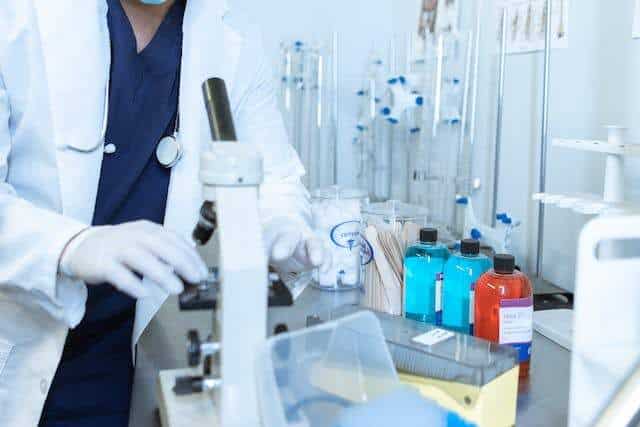The fields of science and medicine are an ever-changing and progressive study of our health and the tools to diagnose, treat, and prevent disease. This relentless chase has led to an array of standout technologies and methodologies that are poised to rewrite our scripts for approaching health care.
From the microscopic to the wearable, these developments are giving mankind a glimpse into a future that is more accurate, tailored, and preemptive in the domain of medicine.
Single-Cell Imaging Technologies
An advance at the forefront of such transformation is the improvement in single-cell imaging technologies. The single cell imager is one of those developments in medical research that offers one of the greatest looks into the cellular processes underlying health and disease.
The technology enables scientists to see and study the behaviors and characteristics of an isolated single cell – never before possible. This is particularly important since it opens a window into the very heart of the cellular responses to diseases, treatments, and changes in the environment that help set in motion the very intricate processes controlling health.
The single-cell imager technology has opened new prospects for diagnostics and treatments of diseases, which have become possible with a refined understanding of the movement of diseases at the cellular level. The implications of personalized medicine were profound, considering the technology opened ways for treatments personalized for individual cellular makeup, which increased the effectiveness and reduced the side effects of therapeutic interventions.
Gene Editing Tools
The burgeoning field of gene editing, spearheaded by the innovative CRISPR-Cas9 technology, offers a transformative approach to healthcare. This exciting avenue allows for precise modifications to the very blueprint of life – our DNA – potentially correcting errors that underlie numerous genetic disorders. Such prospects fuel the scientific community’s optimism for the future, envisioning novel therapies and a deeper understanding of the human genome.
However, wielding this powerful tool necessitates careful consideration of its ethical implications. Germline editing, where changes are heritable, ignites complex debates. Its potential to shape future generations demands meticulous and responsible development, guided by a strong foundation of ethical principles.
Therefore, approaching gene editing requires a balanced perspective. Its potential to revolutionize medicine and unlock genetic mysteries is undeniable. Yet, acknowledging the ethical questions surrounding germline editing is paramount. By proceeding with caution and prioritizing responsible application, we can ensure that this powerful tool serves as a beacon of hope, not a source of unforeseen consequences.
Wearable Health Monitoring Devices
Another major contribution to medical science has been the increase in wearable health monitoring devices. These vary from wrist smartwatches to health and fitness bands, which are ever more advanced at monitoring diverse vital signs and health indicators in real time. The implications of this ability for preventive medicine are mind-boggling, as people can become more proactive in controlling their health.
Recent statistics are indicative of the fact that wearable devices are increasingly being integrated into the regulation of health and lifestyle. In 2023, nearly one-third of Americans had begun to use a wearable device, such as a smartwatch or a band, to keep track of their health and fitness.
Wearable devices provide an opportunity for transforming the management of chronic diseases while ensuring continuous monitoring of health conditions such as diabetes, heart disease, and hypertension. The devices are therefore going to provide individuals with real-time health status, which could then facilitate early interventions in their cases with minimal chances of the situation getting complicated and the outcome.
Artificial Intelligence in Diagnosis Procedures
Medical diagnostic procedures are the largest area in which artificial intelligence (AI) is going to revolutionize. Artificial intelligence, upon being fed with the required information, using its machine-learning algorithms, can analyze the medical image, interpret the results of the test, and even predict outcomes for the patient in a manner that is quite unprecedented – attaining results with such incomparable speed and precision to that of a human.
This carries huge consequences as regards the early diagnosis of diseases such as cancer, in which the rates of early diagnosis play a significant role in the increase in the effectiveness of the treatments.
Integration into clinical settings is not without its problems regarding data privacy, the strong need for AI algorithm validation, and possible inequalities in access to AI-enhanced diagnostics. Nevertheless, it is indubitable that AI comes with the potential for dramatic improvements in patient care, besides improved diagnostic accuracy and efficiency.
Final Thoughts
These four major technological advancements are the true frontier signs of our knowledge and efforts in the fight against diseases. Each comes with its own unique set of possibilities and challenges, all aimed at advancing healthcare.
While these technologies continue to develop, they offer the promise of the transformation of medical practice towards healthcare, which is precisely personalized and pre-emptive. The road ahead will be filled with scientific, ethical, and logistical hurdles, but the possibilities for human health make this an unparalleled pursuit.







